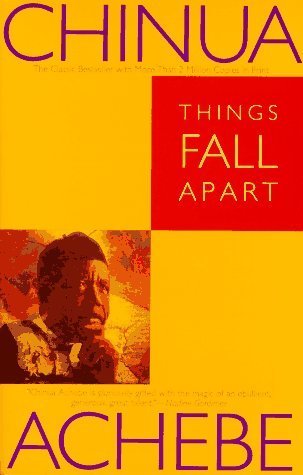


Books in series

Things Fall Apart
1958

No Longer at Ease
1960

Arrow of God
1964

The African Trilogy
Things Fall Apart, No Longer at Ease, Arrow of God
1988
Author

Works, including the novel Things Fall Apart (1958), of Nigerian writer Chinua Achebe describe traditional African life in conflict with colonial rule and westernization. This poet and critic served as professor at Brown University. People best know and most widely read his first book in modern African literature. Christian parents in the Igbo town of Ogidi in southeastern Nigeria reared Achebe, who excelled at school and won a scholarship for undergraduate studies. World religions and traditional African cultures fascinated him, who began stories as a university student. After graduation, he worked for the Nigerian broadcasting service and quickly moved to the metropolis of Lagos. He gained worldwide attention in the late 1950s; his later novels include No Longer at Ease (1960), Arrow of God (1964), A Man of the People (1966), and Anthills of the Savannah (1987). Achebe defended the use of English, a "language of colonizers," in African literature. In 1975, controversy focused on his lecture An Image of Africa: Racism in Conrad's "Heart of Darkness" for its criticism of Joseph Conrad as "a bloody racist." When the region of Biafra broke away from Nigeria in 1967, Achebe, a devoted supporter of independence, served as ambassador for the people of the new nation. The war ravaged the populace, and as starvation and violence took its toll, he appealed to the people of Europe and the Americas for aid. When the Nigerian government retook the region in 1970, he involved in political parties but witnessed the corruption and elitism that duly frustration him, who quickly resigned. He lived in the United States for several years in the 1970s, and after a car accident left him partially disabled, he returned to the United States in 1990. Novels of Achebe focus on the traditions of Igbo society, the effect of Christian influences, and the clash of values during and after the colonial era. His style relied heavily on the Igbo oral tradition, and combines straightforward narration with representations of folk stories, proverbs, and oratory. He also published a number of short stories, children's books, and essay collections. He served as the David and Marianna Fisher university professor of Africana studies at Brown University in Providence, Rhode Island, United States. ollowing a brief illness, Achebe died.